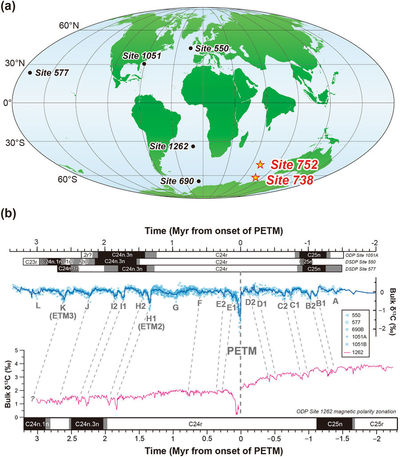Authors
Kazutaka Yasukawa, Kentaro Nakamura, Koichiro Fujinaga, Minoru Ikehara & Yasuhiro Kato
Abstract
Multiple transient global warming events occurred during the early Palaeogene. Although these events, called hyperthermals, have been reported from around the globe, geologic records for the Indian Ocean are limited. In addition, the recovery processes from relatively modest hyperthermals are less constrained than those from the severest and well-studied hothouse called the Palaeocene–Eocene Thermal Maximum. In this study, we constructed a new and high-resolution geochemical dataset of deep-sea sediments clearly recording multiple Eocene hyperthermals in the Indian Ocean. We then statistically analysed the high-dimensional data matrix and extracted independent components corresponding to the biogeochemical responses to the hyperthermals. The productivity feedback commonly controls and efficiently sequesters the excess carbon in the recovery phases of the hyperthermals via an enhanced biological pump, regardless of the magnitude of the events. Meanwhile, this negative feedback is independent of nannoplankton assemblage changes generally recognised in relatively large environmental perturbations.

Scientific Reports:https://www.nature.com/articles/s41598-017-11470-z